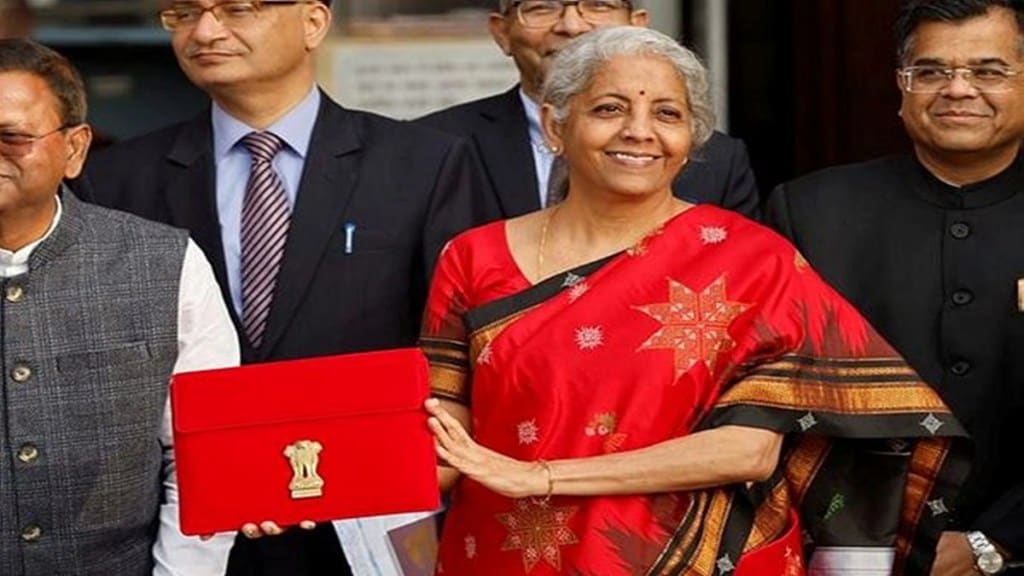– By Rakesh Nangia and Sudin Sabnis
The finance minister (FM) unveiled the first budget in Amrit Kaal on the background of the Economic Survey pegging India’s economic growth forecast between 6- 6.8 per cent for FY 2023-24. With all global eyes on India’s budget, the FM pronounced a pro-growth agenda with a massive capital outlay in infrastructure, green growth and tech enabled projects and impetus to ‘Make in India’ and ‘Aatmanirbhar Bharat’ programs. Some of the key highlights aimed at giving a stimulus to the manufacturing and auto sector are enumerated in the ensuing paragraphs.
Automotive sector
The Government has already launched various initiatives such as PLI scheme for Advanced Chemistry Cell (ACC), PLI Scheme for automotive sector (Rs 25,938 crore) and Faster Adoption of Manufacturing of Electric Vehicles (FAME) to enable the automotive sector to leapfrog from traditional fossil fuel-based automobile transportation system to environmentally cleaner, sustainable, advanced and more efficient alternate fuel technology.
In the Budget 2023, a substantial budget of Rs 19,700 crores has been allocated for the National Green Hydrogen Mission for reducing India’s dependency on fossil fuels imports to encourage green mobility. Moreover, customs duty has been exempted on capital goods imported for manufacturing lithium-ion batteries to boost EV domestic production. These steps will go a long way to boost the EV sector in India and the automotive sector at large which is still recuperating from the pandemic losses.
Toy manufacturing
The thrust of the Indian Government is to majorly build domestic toy manufacturing capabilities and cut imports of unsafe toys (which are majorly imported from China). Data released by the commerce ministry also shows the value of toys imported by India has declined by 70 per cent signifying a drop in India’s reliance on foreign made toys. Further to the Government announcing a program to reward manufacturers of toys that meet Bureau of Indian Standards (BIS) standards with a PLI scheme of Rs 3,500 crores, with an aim to discourage import of toys, the FM has announced an increase of customs duties on toys and toy parts from 60 per cent to 70 per cent.
Other measures
The FM has also proposed extension of 15 per cent corporate tax rate to new manufacturing co-operative societies incorporated till 31st March 2024 which was earlier available only for companies. This is a substantial incentive for co-operatives in sugar and ethanol manufacturing, food products etc. Carry forward and set off of losses for start ups which was earlier available for 7 years has now been increased to 10 years. Moreover, for incorporation of new start-ups eligible for exemption, the period has been extended for another year, i.e. till 31st March 2024.
Ease of doing business
The Budget has also emphasised on increasing ease of doing business with various new schemes being introduced key measures listed below:
PAN of establishments to be used as a ‘common identifier’ for specified government agencies;
A system of ‘Unified Filing Process’ for submission of common information to different Government stakeholders;
Setting up of a centralised data processing centre for faster handling of administrative work under the Companies Act etc.
Though the Budget 2023 gave a miss to some much-anticipated aspects like incentives for research and development, GST Tribunals, etc. on a holistic basis, the Budget seems a step in the right direction to make India one of the manufacturing engines of the world. With uncertainties galore on the global economic growth front, India is poised to outshine other countries with this Budget 2023 further encouraging ‘Make in India’, change in India’s energy mix and ease of doing business.
(Rakesh Nangia is the Chairman and Sudin Sabnis is Partner at Nangia Andersen LLP. The article is co-authored by Tamanna Hinduja and Vijiyan Khongal.)


